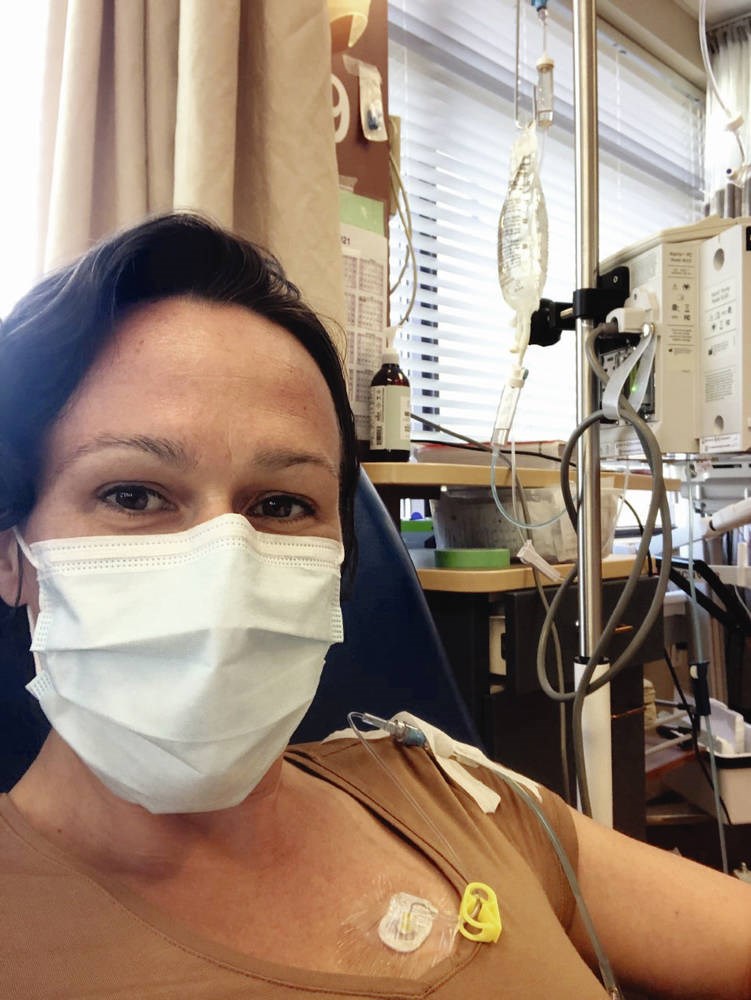A 39-year-old mother who is undergoing chemotherapy received a second dose of COVID vaccine three weeks after her first, after campaigning for earlier booster shots for cancer patients.
Lise Berube, who got her second shot on May 6, said while she’s thankful, she has no idea why she was given an opportunity denied to others in the same boat. “Having a select few people in B.C. who are either lucky, in the right place at the right time, or loud enough ‘squeaky wheels’ get their second doses prioritized is not an effective, nor a just plan,” said Berube.
Berube, who has two young children, is one of many cancer patients in the province and across the country fighting for second vaccine doses within the manufacturer’s recommended time frame — 21 to 28 days — based on some studies that show a reduced effectiveness of a first dose in those who are immune-compromised.
Alberta, Ontario, Manitoba, Saskatchewan, Quebec, and the territories have all adopted policies to prioritize chemotherapy and severely immuno-compromised patients for second vaccine doses, said Berube.
Berube said she received a text message May 4 confirming a vaccine appointment for the next day. Although she suspected it might be a glitch in the system, she went to the Victoria Conference Centre in the “slight hope” health officials had changed their policy and she would get her second shot of Pfizer.
“They refused to give me the second dose, saying that nobody was able to get their second dose in the recommended three weeks at this time,” said Berube, who was diagnosed with breast cancer in 2016 and is considered Stage 4.
She shared her frustration with the Island Health public health nurse, who passed along her concerns.
The next day, she was told the medical health officer had approved her second dose for that week. “I received my second Pfizer vaccine dose less than four hours later, on May 6,” said Berube.
Berube said while she’s relieved and grateful to have received a second dose, she feels “extremely frustrated” with the province’s approach. “I really know nothing about why I got it,” she said.
The office of the provincial health officer has stuck with its decision to delay second doses for all British Columbians for up to four months, although it says “on an individual basis,” some people are receiving their second dose to allow them to time their chemotherapy sessions.
As well, cancer patients are advised to have their oncologists appeal to a medical health officer, but many complain they receive a message that clinically extremely vulnerable patients are not able to access second doses right now.
Provincial health officer Dr. Bonnie Henry has said the best protection for everybody — including those who are immune-compromised — is for more people to be immunized as soon as possible with a first dose to reduce the risk of transmission.
Given the current pace of vaccinations, first doses are likely to be followed by a second in fewer than four months, Henry has said, but the strategy could change if vaccine effectiveness is discovered to be waning in certain populations.



